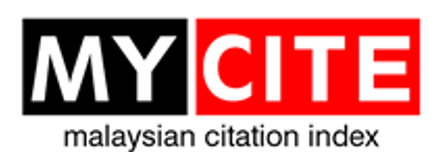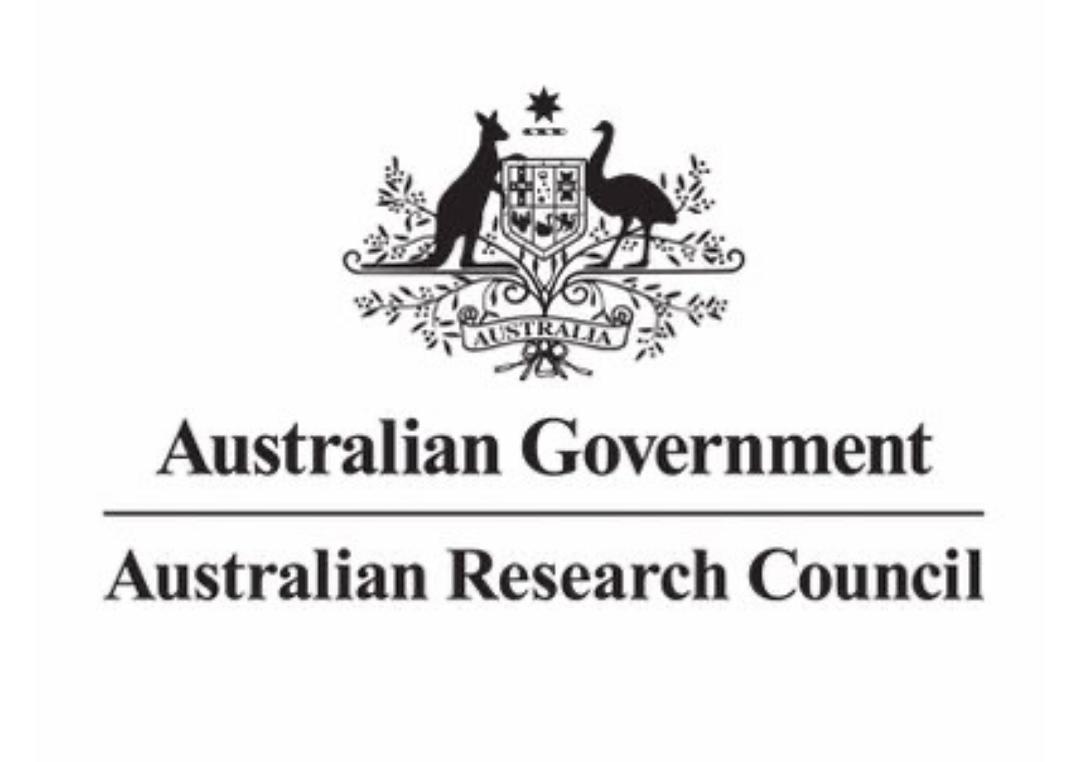Journal Policies
Ethics Statement
The Journal of Tropical Biology and Conservation (JTBC), published by Universiti Malaysia Sabah adheres to the international publication ethics practices based on the guidelines provided by the Committee on Publication Ethics (COPE).
Peer Review Process
The JTBC adopts a single-blind peer-review while encouraging the reviewer to waive anonymity. The JTBC requires the corresponding author to submit a cover letter to state conflict of interest, and agreement from all co-authors. The JTBC adheres to the Committee on Publication Ethics (COPE) Code of Conduct and Best Practice Guidelines and reserves the right to retract articles which are found to be fraudulent.
Each article is reviewed by at least two independent experts. Reviewers are asked to evaluate and give constructive comments on whether or not the research questions and hypotheses are justified with sufficient background information, the experimental design, experiments, data collections are performed in a reproducible manner, and the data analyses and statistics are done correctly. Regardless of novelty, impact or size, all research findings are worthy to be published as long as the research was done according to the required scientific method.
Reviewer reports and the editor’s report will be made available to the author so that the manuscript can be improved upon. Authors are required to respond to all reviewer's comments in a rebuttal letter. In addition to the rebuttal letter, authors are also required to submit a clean revised manuscript with the line number and a marked-up copy of the changes made from the original manuscript with the "Track Changes' file. A decision on acceptance will be recommended by the Associate Editor, and the final decision will be made by the Editor-in-Chief.
Open Access Policy
The JTBC provides immediate free access to its content on the principle that making research freely available to the public supports a greater global exchange of knowledge.
Licensing
The JTBC provides open access to its content under CC BY-NC 4.0 Attribution-NonCommercial 4.0 International.
Copyright and Repository Policy
The JTBC allows authors to retain the copyright of their publications without restrictions, but authors will grant the JTBC the right of first publication, and other non-exclusive publishing rights. Authors retain the right to use the substance of the article in their future works, provided that its prior publication in this journal is acknowledged.
The JTBC grants permission to authors to deposit the finalised, published version of their papers in their respective institutional or personal repositories.
Professional Conduct and Respect Policy
At the JTBC, we are committed to fostering professional relationships with the communities we serve through mutual respect. All members of the JTBC editorial team are expected to interact courteously with authors, reviewers, and readers—and we expect the same in return.
The JTBC does not tolerate any form of harassment, bullying, discrimination, or aggressive behaviour towards our editorial team. Serious violations may be reported to the institutions, employers or regional authorities of the offending authors, reviewers, and readers. The editorial team of JTBC reserves the right to end interactions or refuse service to the individuals who breach this policy.
Responsibilities of Authors
Reporting Materials
Original research should clearly demonstrate an accurate account of the work with specified objectives and significance, and by presenting verifiable data. It should contain sufficient details and references that will maintain repeatability of the work. Authors should review publication articles and state opinion works accurately and objectively.
Data Access and Retention
In some circumstances, authors may be asked by reviewers to provide the original data used for the manuscript, hence be prepared for such circumstances. Wherever necessary, authors may also be asked to retain data for a reasonable length of time after publication.
Plagiarism
The journal accepts original works. All work and text by others should be appropriately cited and quoted in the manuscript. Plagiarism, in all of its forms, is not tolerated, and constitutes unethical publishing behaviour. When a manuscript is submitted to JTBC, the editorial team will conduct a Turnitin check to ensure that the similarity index value is below 30%. Manuscripts that exceed this threshold value will be rejected. For manuscripts that pass the initial screening and undergo the review process, they will be subjected to a second Turnitin check when a revised version of the manuscript is received following the reviews from the reviewers.
Multiple and Concurrent Publication
Submission of work describing essentially the same research to more than one primary publication, or submission of the same manuscript to more than one journal is considered unethical and unacceptable. Similarly, a previously published paper in the JTBC should not be sent for consideration in another journal and vice versa.
Acknowledgement of Sources
All assistance and works of others that are influential and/or are used in the reported work must always be given proper citation and acknowledgement. Likewise, privately obtained information should only be used with explicit permission from the source. Written permission from the author of work involving information obtained in the course of confidential services e.g. refereeing manuscripts or grant applications must be obtained before they are used in the reported work.
Authorship
Authorship should be limited to those who have made a significant contribution to the conception, design, execution, or interpretation of the reported work. All those who have made significant contributions should be listed as co-authors. Where there are others who have participated in certain substantive aspects of the research project, they should be acknowledged or listed as contributors. The corresponding author is responsible in ensuring all appropriate co-authors are included in the paper, and that all co-authors have seen and approved the final version of the paper and have agreed to its submission for publication. If the work involves materials, procedures or equipment that have any unusual hazards, these must be explicitly explained and identified in the paper.
Declaration of Generative AI Use
Authors are allowed to utilise AI or AI-assisted technologies (henceforth referred to as AI) to assist in the writing process only for the improvement of language and readability. AI should not be used for writing content, producing citations, data analyses or figure generation. The usage of AI must be used under human control and oversight, and all work produced must be reviewed by the authors. AI cannot be listed as an author, co-author or cited as an author. Authorship implies tasks and responsibilities that can only be performed and attributed to a human being. Authors must disclose the use of AI in the writing process in the Manuscript Submission form at the time of submission, and the Copyright Transfer form upon acceptance of the manuscript for publication. Be reminded that authors are held responsible and accountable for the contents of their work.
Disclosure and Conflicts of Interest
Special attention should be given to financial and conflict of interest that could influence the results and/or the interpretation of the work in that all sources of financial support should be disclosed. At the time of submission, employment, consultancy work, holding of stock, fees related testimony, grants and other kinds of funding should be disclosed as these may be construed to influence the findings.
Disclosure of generative AI and AI-assisted technologies use should be made when submitting the Manuscript Submission form and upon acceptance of the manuscript for publication, the Copyright Transfer form.
Permits and Clearance for Studies
Information about the necessary permits to conduct the research from the respective granting bodies (eg. Federal or State departments, agencies, land area managers) must be included when submitting a manuscript. In addition, proof of research clearance must be provided such as animal ethics approval for experiments carried out on animals, or prior informed consent (PIC) for studies involving interviews with the community. Each research and/or ethical permit approval number must be in the manuscript submission form.
Errata
Upon discovery of any significant error or fundamental inaccuracy in a published work, it is the author’s obligation to notify the Editor-in-Chief and seek assistance in the retraction or correction of the paper. Similarly, a proof of correctness of the original paper should be provided to the editor when necessary to do so.
Responsibilities of the Editorial Board
Decisions on Publication
The decision of article to be published and when it is to be published in the JTBC is the responsibility of the Editor-in-Chief and will be based on the importance of the work to researchers and readers. The Editor-in-Chief should perform their duties and make decisions following the policies of the Editorial Board, in which, conferment with handling and other editors and reviewers may be necessary.
Impartiality
The review process on a manuscript will only be based on its content. No decision and revision are done in relation to gender, race, religious belief, ethnicity, citizenship or political philosophy of the authors.
Confidentiality
The Editor-in-Chief and all editorial staff will not disclose any information about a submitted manuscript to any party other than the corresponding authors, reviewers and the publisher.
Conflicts of Interest and Disclosure
Editors will be responsible to protect unpublished material in a submitted manuscript. Any use of the materials must be preceded by a written consent of the author. Access to information or ideas obtained as a privilege in the function as an editor must be kept confidential and not to be used as an advantage. In the event that editors will potentially have conflicts of interests, they should recuse themselves from reviewing the manuscript. On a similar note, editors should call for disclosures of interests by all contributors, including in the corrections done after publication. Whenever appropriate, publication of the retraction or any other actions will be done accordingly.
Responsibilities of Reviewers
All manuscripts received for a review must be treated with confidentiality at all times. Reviewers should not upload the manuscript nor any section of its text into a generative AI tool to avoid violating the confidentiality and proprietary rights of the authors. Reviewers should not upload their peer review report into a generative AI tool, even if it is for the purpose of improving language and readability. Generative AI or AI-assisted tools should not be used to conduct the scientific review of a manuscript.
Discussion with other experts should only be done after obtaining authorisation from the Editor-in-Chief. We encourage the involvement of early career researchers (ECR), i.e., postgraduate students and researchers within 5 years since obtaining their postgraduate degrees, in the review process. If our established reviewers would like to co-review with an ECR, please obtain authorisation from the Editor-in-Chief by including the name and email address of the ECR when accepting the invitation to review. The co-reviewer will also receive an acknowledgement email from the Editor upon completion of the review.
A review on a manuscript should be conducted objectively and professionally, without any inappropriate personal criticism of the author. Expression of opinion and views by the reviewers should be done clearly and, wherever appropriate, with supporting documents. If relevant published work has not been cited, the reviewer may include it in the recommendations to the author.
Communications between the reviewers and the editors may be necessary in making editorial decisions and to improve the manuscript. Upon detection of any substantial similarity with the manuscript and other published work, a reviewer should report it to the editor immediately. Reviewers should notify the editor if an extension is required for the review period.







